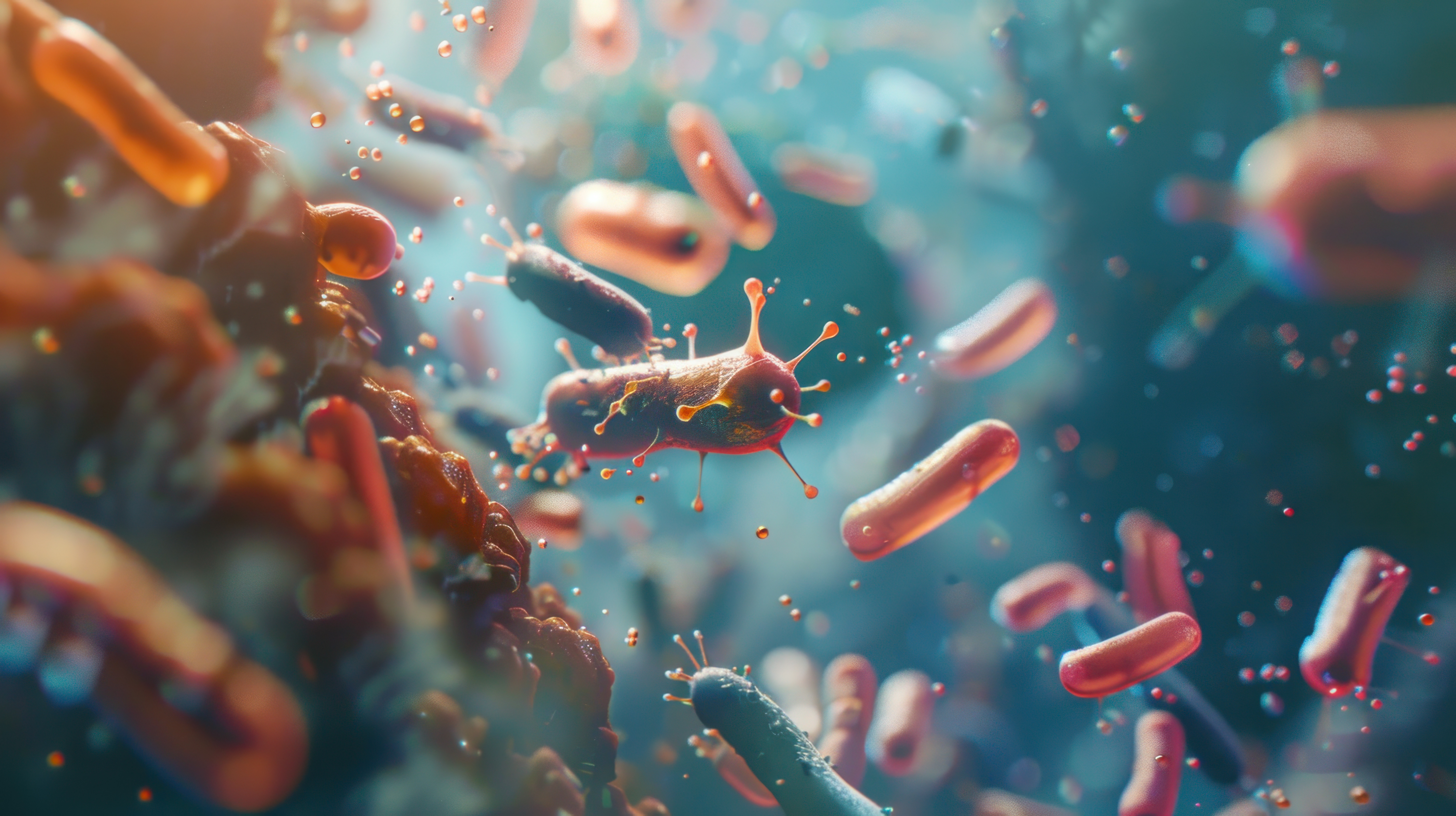TESTING OF THE GUT MICROBIOME - WHY US?
In what situations is it appropriate to take the test?

Digestive disorders
Bloating, abdominal pain, trouble defecating? The composition of the bacteria influences the rate at which digestion passes through the gut, but also what substances and nutrients are produced and how they are absorbed.

Decreased immunity
Susceptibility to infections or allergic reactions? The gut is home to 70% of the immune system. The bacteria living in the gut stimulate our immunity, influencing the development of inflammation and the body's response to infection.

Obesity
Are you still gaining weight? Certain bacteria specialise in the use of proteins, carbohydrates or fats, thus influencing the process of their absorption and thus the body weight of each of us individually.

Inflammatory diseases
Intestinal bacteria directly form or destroy the protective layer of the intestine. If this is disrupted, harmful substances from the external environment or pro-inflammatory substances enter the body, increasing the risk of chronic inflammation.

Mental health problems
Up to 95% of serotonin - the "happiness hormone" - and 50% of dopamine are produced in the gut. Colonic bacteria and their products stimulate their production, so they directly influence the production of these substances.

Cardiometabolic diseases
Intestinal bacteria produce substances that affect our metabolism, such as the conversion of cholesterol or the use of glucose in the body, and thus directly affect the risk of certain cardiometabolic diseases.

DETAILED INFORMATION
The main output of the analysis is an assessment of what bacteria live in your colon and in what proportions, and whether or not your microbiome can be considered sufficiently balanced and diverse.
We can use information about the abundance of certain bacteria to give practical advice and recommendations. The composition of the gut microbiota is dynamic and can be influenced by what we consume - from major nutrients to various bioflavonoids (active substances from plants with beneficial effects on the body), but also negatively by alcohol or antibiotics.
In general, the goal of influencing the gut microbiome can be said to be to promote the growth of beneficial bacteria and prevent the overgrowth of bacteria that are known to be harmful to us.

HOW DOES THE WHOLE PROCESS WORK?
- Order your examination in our e-shop and register. After payment, you will receive a collection kit by post.
- Follow the instructions to take a stool sample and fill out a questionnaire regarding your health and dietary habits.
- You will send everything back to our lab in a prepaid envelope.
- After analyzing the sample, we will send you the resulting report to your profile on ghcgenetics.cz.
- Book an appointment for a final consultation with our expert.

Why is consultation with an expert so important?
Intestinal bacteria produce numerous active compounds, the formation of which is dependent on dietary habits, lifestyle, as well as the presence of illness or medications.
Mgr. Hana Sládková Kavínová, our nutrigenetics expert and nutritionist, will elucidate important findings in your final report and, based on a targeted discussion with you, propose specific adjustments to your diet or lifestyle:
- Identify harmful factors and assist you in eliminating them.
- If any essential nutrients are lacking in your diet, suggest how to supplement them.
- May also recommend targeted dietary supplements to promote the growth of beneficial bacteria or limit the growth of risky ones.
This individualized approach to your dietary habits will significantly facilitate the implementation of specific recommendations into practice, allowing you to fully leverage the potential of intestinal microbiome analysis.
Cutting-edge analysis and diagnostics form the backbone of our laboratory.
Sample testing is exclusively conducted in our certified molecular genetics and microbiology laboratory, ensuring full control over the entire analysis process and guaranteeing the quality of delivered results.






